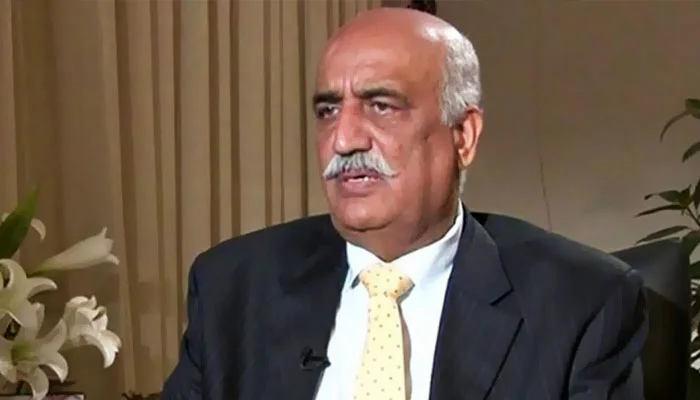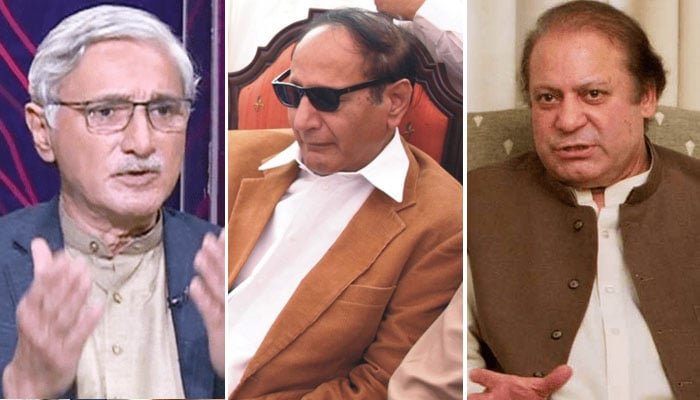During a recent interview on Geo News’ program “Aaj Shahzeb Khanzada Ke Saath,” former federal minister and senior leader of the Pakistan Peoples Party (PPP), Syed Khursheed Shah, expressed admiration for Asif Zardari’s political positioning, contrasting it with that of Bilawal Bhutto Zardari.
Khursheed Shah stated that Asif Zardari had thrown his support behind Bilawal Bhutto, effectively handing over the reins to the younger Bhutto scion. Shah went further to suggest that if Asif Zardari had chosen to contest elections alongside Bilawal, they could have easily gained significant political traction, possibly reminiscent of the 1980s when the PPP enjoyed widespread popularity.
Shah emphasized his approval of Asif Zardari’s strategic move, asserting that Zardari does not wish to compete with the Pakistan Muslim League-Nawaz (PML-N) in the political arena. This decision, according to Shah, demonstrates Zardari’s astute understanding of the current political landscape.
Khursheed Shah also commented on the coalition government at the federal level, noting that it is essentially led by the PML-N, with several members of the current cabinet having affiliations with the PML-N. He added that the PPP did not come to power in Punjab by choice but rather due to the unique circumstances of the province.
Expressing his satisfaction with Nawaz Sharif’s return to Pakistan, Shah conveyed that they had always advocated for Nawaz Sharif to come back to the country. Shah’s statement underscores the evolving dynamics of Pakistan’s political scene, with former rivals showing signs of solidarity.
Regarding the arrest of Maryam Nawaz, the daughter of Nawaz Sharif, Khursheed Shah highlighted that Bilawal Bhutto Zardari had issued an extraordinary statement, signaling the PPP’s concern about the situation. He remarked that when the government is led by the PML-N, complaints are naturally directed towards them, emphasizing the need for level playing fields in the political arena.
Khursheed Shah drew attention to the differing levels of progress between Punjab and Khyber Pakhtunkhwa (KP) as opposed to Sindh. While acknowledging bureaucratic changes in Sindh, he noted that similar changes had not occurred in Punjab.
Khursheed Shah’s interview shed light on the complexities of Pakistan’s political landscape, with strategic moves and alliances influencing the direction of the country’s politics. Asif Zardari’s decision to support Bilawal Bhutto Zardari, the ongoing cooperation between the PPP and PML-N, and the challenges faced in different provinces all serve as indicators of the intricate dynamics shaping Pakistan’s political future.



